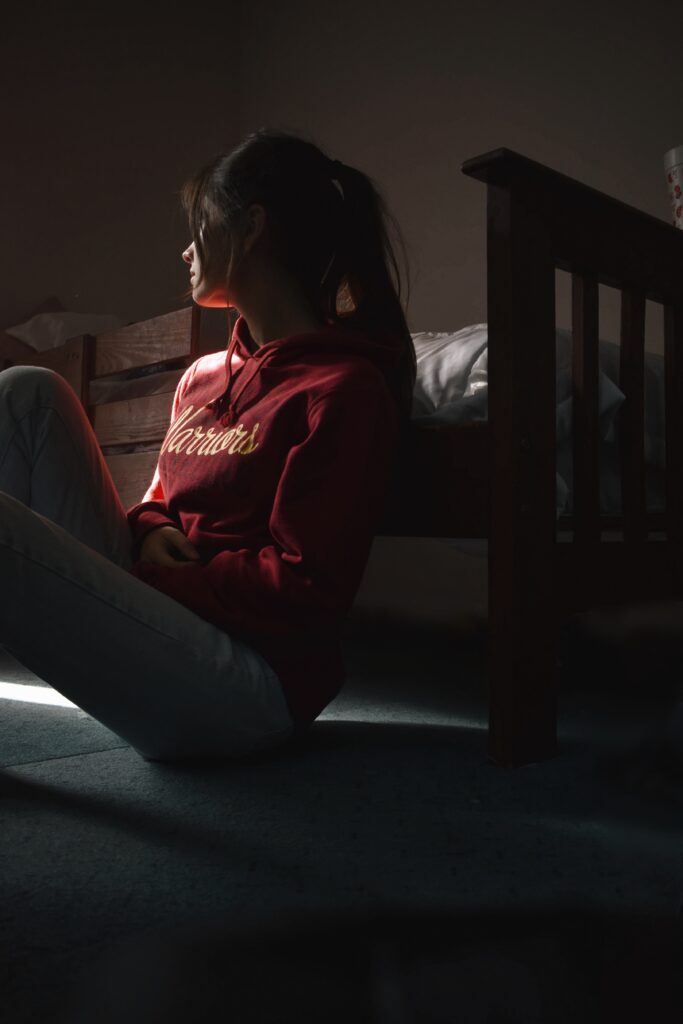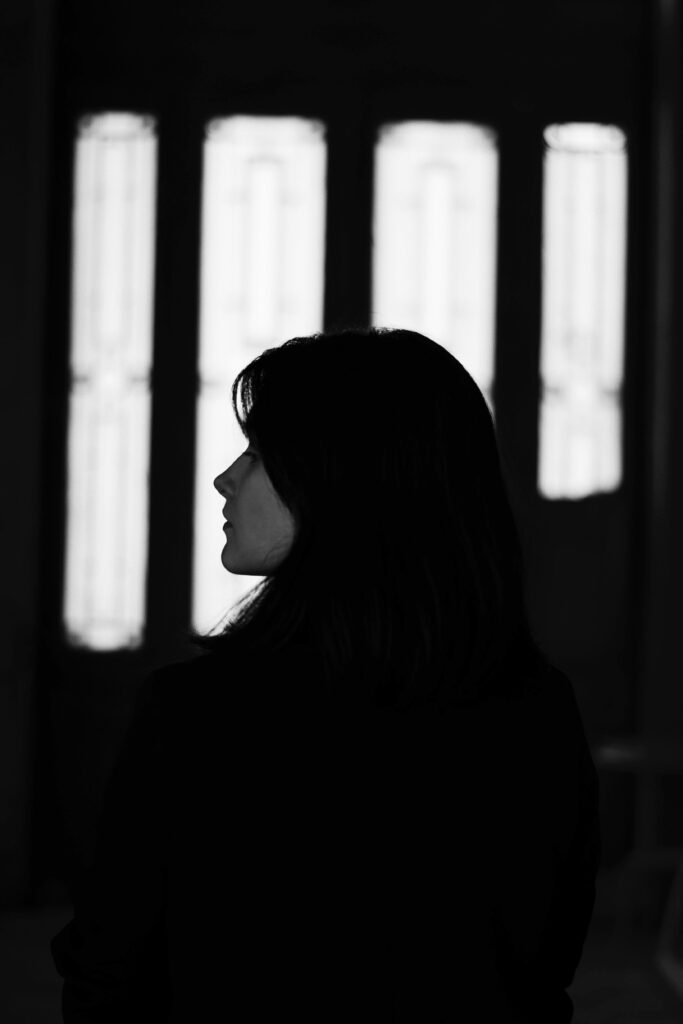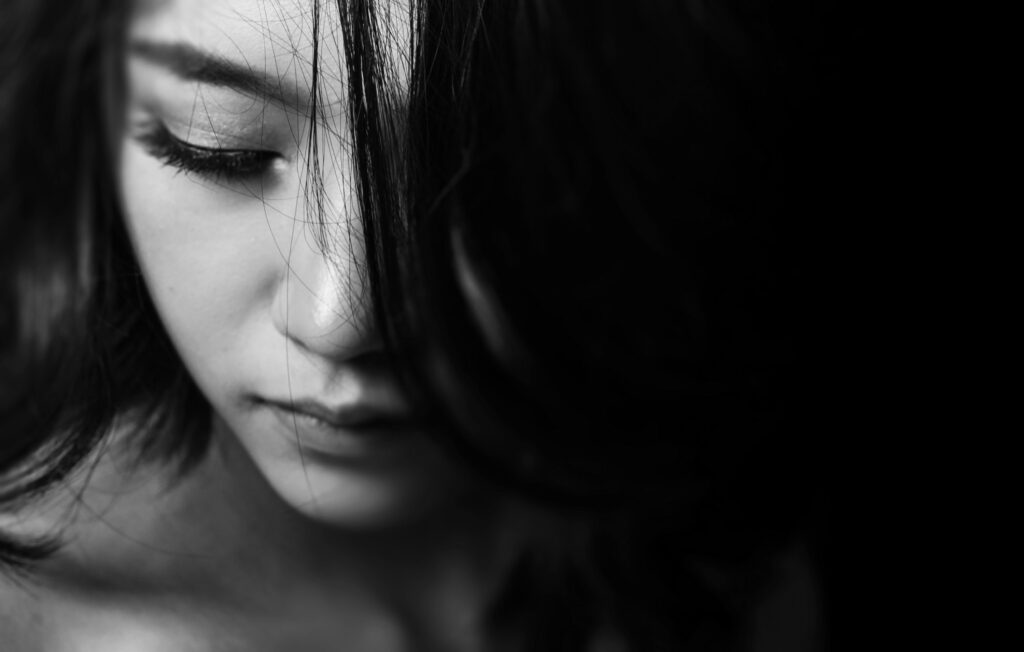My daughter (P) is 13 and has Anorexia Nervosa, or rather: Anorexia Nervosa has her. She was diagnosed in December 2019 (aged 12) and, despite making some progress with the community CAMHS team, she stopped eating completely and was admitted to a specialist unit in February 2020.
I didn’t think this would happen to my family. I had read fiction about anorexia a few years previously and thought I would know what to look out for. I thought that I had quite a good understanding of mental health before this journey started. But to see my 13-year old daughter, who was happy, funny, confident, hard-working and honest, be controlled by this demon in her mind has given me an understanding that I don’t really want to have. Our journey is horrible, heart-breaking and lonely at times. Part of that loneliness is due to the stigma and severe lack of understanding around eating disorders. We are still at the start of a very long journey, but if I can raise even a little awareness about this horrendous illness, then it might save another family from going through the same.
Anorexia takes over your entire life – not only for the sufferer, but for the family too. It brings complete devastation to all. It is all-consuming. For my daughter, every waking second is taken up with thoughts about food, meals, calories and exercise. She has an anorexic voice which punishes her, makes her feel guilty, tells her she is worthless, useless, fat, ugly, unlovable. This doesn’t mean she’s hearing voices, but that there is an internal bully constantly putting her down, telling her to try harder and moving the goalposts every time she achieves what is asked (see https://www.beateatingdisorders.org.uk/your-stories/anorexia/that-voice).

P is in hospital and she is very unwell. I cannot be there to hold her when she is sobbing through feelings of guilt, when she is begging me on the phone to let her come home. My new normal is a house with two teenagers where there should be three. I have to walk away from my ill daughter, knowing that I won’t see her for a couple of days. And also knowing that, as her Mum, I cannot fix this for her. Only she alone can do that, and she doesn’t want to. Because Anorexia doesn’t let you see or accept that you are ill. Because Anorexia makes you feel that you cannot cope without it. P feels that she is failing if she’s not the ‘best’ anorexic, if she’s not the most ill. She cannot, currently, fight that demon in her head and start making the very long road to recovery. (I am ‘lucky’; there are many eating disorder units around the country where visiting is not currently allowed due to covid-19 restrictions).
For me as her mum, I’ve seen my daughter change into someone I don’t recognise at times. P was hardworking, honest, funny and sociable but anorexia turned her into someone who would look me in the eyes and lie…someone who would set off the fire alarm on her ward because she’s in so much distress and mental pain that she wants to find a way to run away.
It is not known what causes an eating disorder, but it is believed to be a mixture of genetic, biological and cultural variables. It can affect anyone of any age, gender and background. And it isn’t about how much you weigh – you can be in the grips of this illness and not be underweight (see Hope Virgo’s Dump the Scales campaign: https://www.ncmh.info/2019/02/25/dump-the-scales/). Indeed, right now my daughter is at a healthy weight but that has all been achieved via nasogastric tube feeds. Her anorexia still has so much control over her that she has been unable to eat for 5 months. Food is something which is feared. It would be like asking someone with a fear of spiders to lie down in a room full of them. It is that kind of fear that is faced every time she is expected to eat – which happens 6 or 7 times a day for someone attempting recovery.

Anorexia is a mental disorder. It has the highest mortality rate of all mental health disorders and affects both mental and physical health. Here are just some of the signs of anorexia which I have witnessed (see https://www.beateatingdisorders.org.uk/types/anorexia/signs for a full list).
- poor circulation – feeling cold and being unable to get warm
- blue toes and blisters which won’t heal
- complete exhaustion
- excessive exercise – even in the middle of the night and despite exhaustion
- bruises on back from doing sit-ups
- guilt about not moving every waking second
- guilt about taking a sip of a drink which wasn’t water
- not believing that she is ill, despite being in an eating disorder unit and despite being under a team of specialists
- feeling dizzy and having low blood pressure
- worrying results on ECGs because her heart rate is so low
Anorexia can exist, undetected, for a long time in someone’s life. It starts off as a friend to the sufferer, tells them that they will be stronger if they lose weight, if they exercise some more, if they reach a certain weight. But then it keeps on taking more and more until every second of their day (and night) is plagued by thoughts about food and exercise and about keeping their demon happy. The truth is that anorexia will never be happy: it will keep on taking and demanding more until there is nothing left to give.
I didn’t spot what was going on because I only had individual pieces of a puzzle and I didn’t know what they meant on their own. Dr Elizabeth (Lizzie) McNaught is a medical doctor with lived experience of anorexia. She has put together a tool to help school friends identify when things might not be quite right. I believe that this tool is useful to everyone. It actually means that you can identify all of the separate pieces in the puzzle, put them together and see the big picture (https://familymentalwealth.com/familyfiles/the-abcde-tool-for-spotting-the-early-signs-of-an-eating-disorder/).
A Absence – absenting themselves from food-related activities
B Body – obsessively worrying about the shape of their body
C Control – compulsively in control, or out of control, of food
D Diet – radically changing their food
E Exercise – exercising excessively or obsessively
I could tick off all of these things about my daughter as I look back now, although they did all start off slowly and not all at the same time. I hope that people can access this resource and just keep it in mind if they start to notice small changes.
Life is really, really difficult at the moment. P and her siblings haven’t seen each other for 4 months because of the coid-19 restrictions. P doesn’t think she is ill and therefore she doesn’t see that she needs to get better. Our journey with the eating disorder will be different to other people, but the message I want to get across is that eating disorders are not a choice and those who have them are not attention seeking. They are not diets gone wrong, and they cannot be stopped overnight. Cara’s Corner (https://caras-corner.com/) is a great resource for anyone wanting to understand anorexia further.

